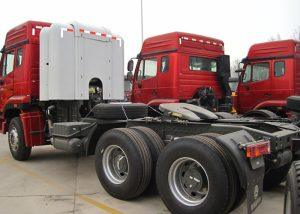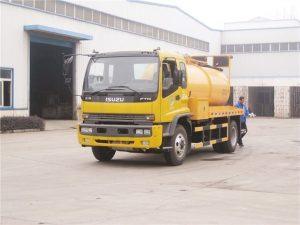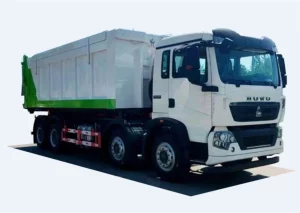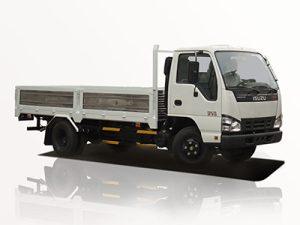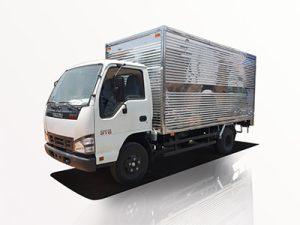Monday to Saturday - 8:00 -17:30
How Much Does a Water Truck Weigh?
Water trucks are essential vehicles used in a variety of industries, from construction to agriculture. Understanding the weight of a water truck can be crucial for logistics, safety, and efficiency. But how much does a water truck weigh? This article explores the factors that influence the weight of water trucks and provides in-depth information on various types, capacities, and legal considerations.
Understanding Water Truck Specifications
1. Definition of a Water Truck
A water truck is a specialized vehicle designed to transport water for various purposes. These trucks are commonly used in construction sites, for dust control, agricultural applications, and firefighting. They come in various sizes and configurations, affecting their overall weight.
2. Different Types of Water Trucks
Water trucks can be categorized based on their design and purpose:
- Standard Water Trucks: Typically feature a tank mounted on a truck chassis.
- Off-Road Water Trucks: Built for rugged terrains; often used in mining and construction.
- Portable Water Tanks: Can be towed, often used in agricultural settings.
3. Components of a Water Truck
The weight of a water truck is determined by several components:
- Chassis: The truck’s frame significantly impacts weight.
- Water Tank: The size and material of the water tank are crucial factors.
- Other Equipment: Pumps, hoses, and valves add to the weight.
Weight Categories of Water Trucks
1. Empty Weight vs. Loaded Weight
The empty weight of a water truck (curb weight) is the weight of the truck without any water, while the loaded weight includes the water capacity. Understanding both weights is essential for operational efficiency and safety compliance.
2. Average Weights of Common Water Trucks
| Type of Water Truck | Empty Weight (lbs) | Full Weight (lbs) | Tank Capacity (gallons) |
|---|---|---|---|
| Light-Duty Water Truck | 8,000 – 12,000 | 12,000 – 20,000 | 1,000 – 2,500 |
| Medium-Duty Water Truck | 12,000 – 18,000 | 20,000 – 30,000 | 2,500 – 3,500 |
| Heavy-Duty Water Truck | 18,000 – 30,000 | 30,000 – 50,000 | 3,500 – 5,500 |
Factors Influencing Water Truck Weight
1. Tank Material
Water tanks are typically made from various materials such as steel, aluminum, or plastic. Steel tanks, while more durable, can be heavier than aluminum or plastic options, which can significantly affect the overall weight of the truck.
2. Additional Equipment
Water trucks may come with various equipment such as fire hoses, pumps, and misting systems. Each of these components has its weight and can contribute to the truck’s overall load.
3. Regulations and Specifications
Depending on local regulations, certain weight restrictions may apply to vehicles. Trucks must comply with these standards to ensure safety on public roads.
How to Calculate the Weight of a Water Truck
1. Understanding Water Weights
Water weighs approximately 8.34 lbs per gallon. Therefore, calculating the total weight when the tank is full involves multiplying the water capacity in gallons by this weight.
Example Calculation
For a water truck with a 3,000-gallon capacity:
- Total Weight of Water: 3,000 gallons x 8.34 lbs/gallon = 25,020 lbs
- If the truck’s empty weight is 15,000 lbs, the loaded weight will be:
- 15,000 lbs + 25,020 lbs = 40,020 lbs
2. Guessing Weights with Scales
For the most accurate weight measurement, it’s advisable to use vehicle scales available at most truck stops or weight stations.
Practical Applications of Water Trucks
1. Construction Sites
Water trucks are crucial for controlling dust on construction sites, reducing air pollution, and enhancing safety. Operators need to manage the truck’s weight to avoid exceeding road weight limits.
2. Agriculture
Farmers use water trucks for irrigation and livestock watering. The weight must be monitored to prevent soil compaction and damage to field equipment.
3. Firefighting Efforts
In firefighting, water trucks provide essential support by delivering large water supplies to areas affected by wildfires. The weight of a fully loaded water truck is critical for assessing the truck’s operational capabilities.
Legal Considerations for Water Truck Weights
1. Weight Limits and Regulations
In many regions, there are legal limits regarding how much a vehicle can weigh on public roads. These laws vary by state and country; thus, truck operators must be aware of local regulations.
2. Permits and Exceptions
Some municipalities may issue permits for overweight vehicles for specific jobs or delivery routes. It’s essential to check regulations and obtain the necessary permits before operation.
FAQs
1. How much does a fully loaded water truck weigh?
A fully loaded water truck can weigh anywhere from 20,000 to 50,000 lbs, depending on the truck type and tank capacity.
2. What factors influence the weight of a water truck?
The weight of a water truck is influenced by tank material, additional equipment, and the truck’s chassis specifications.
3. How do I calculate the weight of the water in my truck?
To calculate the weight of water, multiply the capacity of the water tank in gallons by 8.34 lbs (the weight of a gallon of water).
4. Are there legal weight limits for water trucks?
Yes, there are legal weight limits for water trucks that vary depending on regional regulations. Operators must ensure their vehicles comply with these limits.
5. Can I find scales to weigh my water truck?
Yes, vehicle scales are commonly available at truck stops, weight stations, and some agricultural facilities, providing accurate weight measurements.
6. What should I do if my water truck is overweight?
If your water truck exceeds weight limits, consider emptying some water before operating on public roads. Additionally, check local regulations for possible permits or exceptions.


